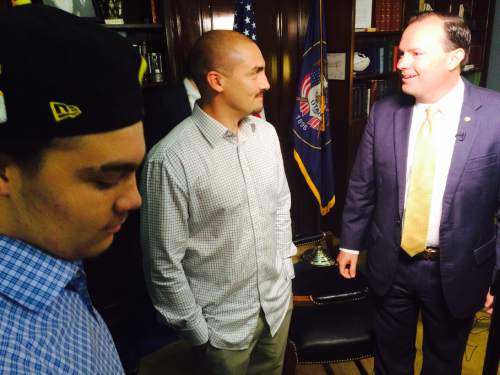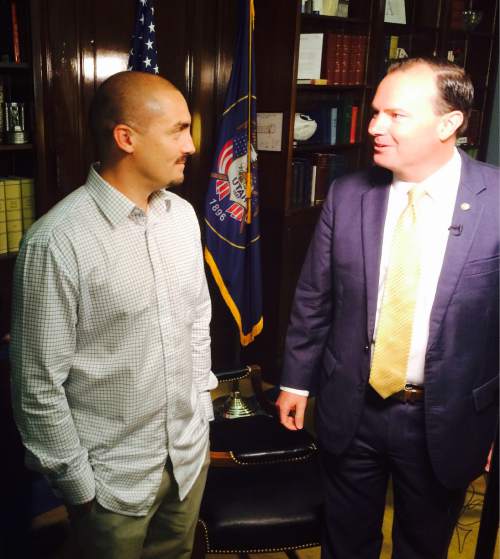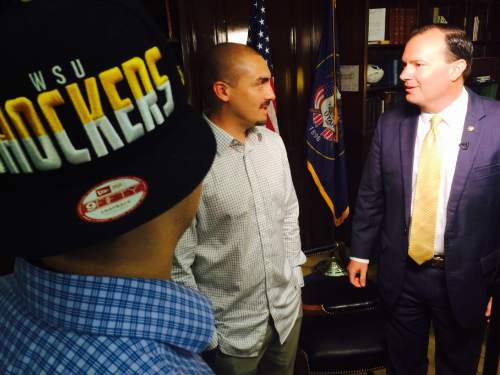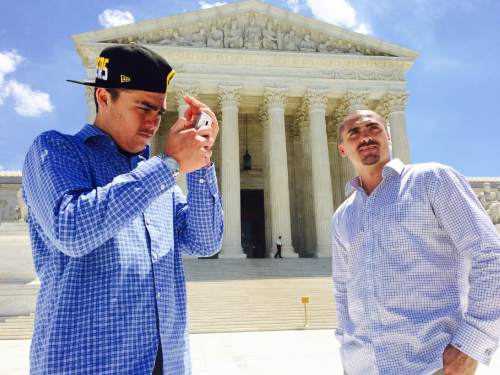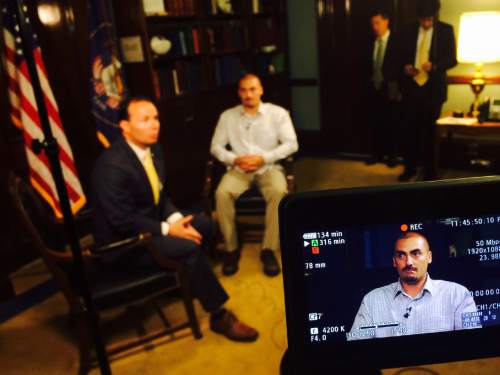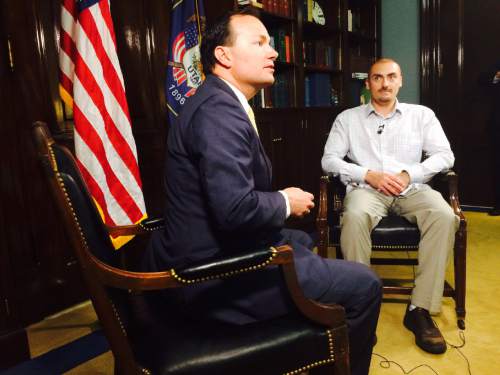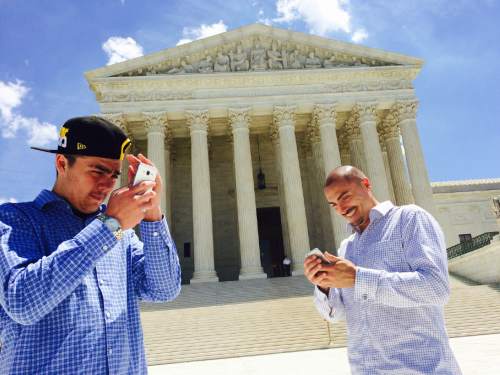This is an archived article that was published on sltrib.com in 2016, and information in the article may be outdated. It is provided only for personal research purposes and may not be reprinted.
Washington • Weldon Angelos, just a month freed from a federal prison cell, walked briskly toward the U.S. Supreme Court, eyeing the building where justices once declined to hear his plea for freedom.
"Can we go inside?" he asked a guide.
For Angelos, 36, a former Utah record producer busted for selling marijuana while in possession of a gun, this was a moment he thought he might never see. At least until he was 80 years old.
"I always thought about it. I always wanted to come here," Angelos said Wednesday, joined by his 17-year-old son Jesse. "It's just weird. In a good way. This is a good day."
Angelos came to Washington this week to thank Sens. Mike Lee and Orrin Hatch, the Utah Republicans who went to bat to help lessen the 55-year prison term that even his sentencing judge said was wrong. He was freed May 31, though the details are a mystery because of sealed court records.
Lee shed some light on those details Wednesday, noting that while Angelos did not receive a pardon or have his sentence commuted, President Barack Obama was involved.
"I believe that when the president became aware of it, the president set in motion certain things that resulted in the release of Mr. Angelos," Lee said. "I believe the White House was involved in reopening the case and seeking his release."
The White House declined to comment.
Now free, Angelos is likely to assume an even bigger role as a poster child for criminal-justice reform, which has found bipartisan support in Congress even as it remains low on the agenda this year.
Lee's Sentencing Reform and Corrections Act, backed by Assistant Majority Leader John Cornyn of Texas and Assistant Democratic leader Dick Durbin of Illinois, would get rid of some enhanced sentences for first-time offenders, cut five years off some of the more stringent minimum-mandatory sentence guidelines and offer judges more leeway in cases involving nonviolent drug offenses.
The bill would apply retroactively, a point that Angelos noted has many federal inmates looking for help from Congress.
"I was incarcerated with many individuals who were serving long sentences like me, some cases that were even more compelling than mine and they didn't have the support network I have," Angelos said. "So they're stuck in there waiting on sentencing reform. That's all anyone thinks about in prison is sentencing reform."
Molly Gill, the federal legislative affairs director for Families Against Mandatory Minimums who was escorting Angelos, said his ability to tell his story personally to members of Congress and the public could help propel action. Even after spending 12½ years in prison, she noted, he is lucky.
"Not everyone has the kind of support that he has," Gill said. "It shouldn't take presidential intervention to get a fair sentence; there's something wrong with the system that Congress needs to fix at the front end. We need to prevent cases like Weldon's."
Though Angelos was scheduled to visit only Lee and Hatch this trip, he was hoping to drop in on some other Senate offices to thank supporters. And he promised to return to the nation's capital.
Lee says having someone actually in Angelos' situation tell the story himself is invaluable and will be going forward.
"It's immensely helpful to have him here, so people can have an opportunity to see and meet and visit with an actual living, breathing human being, a man who is a dedicated father, a man who wants to live a good life. I think it helps for people to understand the human element to this," Lee said.
"The most important aspect of it isn't the financial cost of a very lengthy incarceration, it's the human cost," the senator added. "It's the fact we're taking fathers and sons and brothers, like Weldon Angelos, away from their families for years, for decades sometimes, and we're doing that where it's not warranted."


